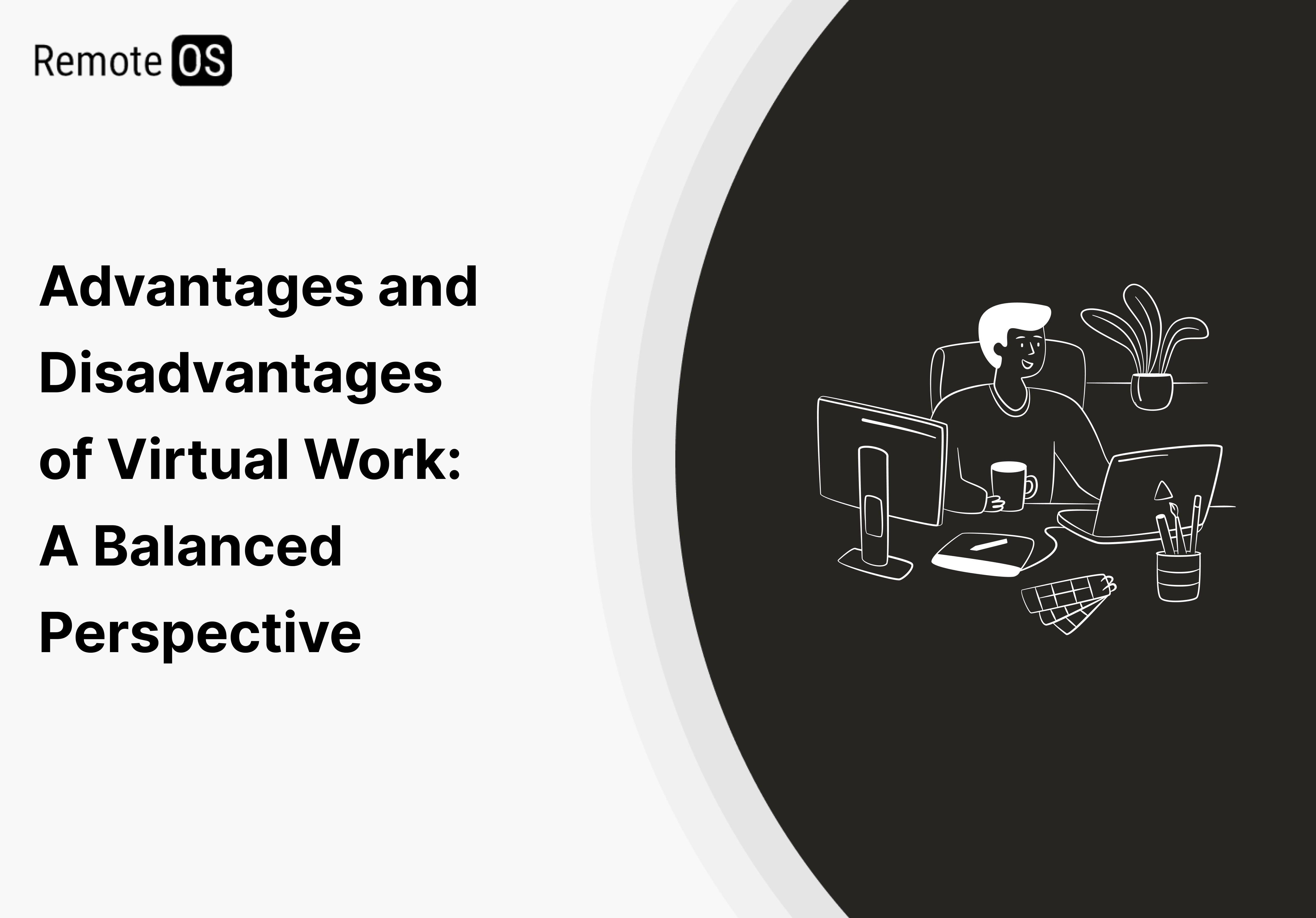Introduction
Virtual work refers to the performance of duties outside of a traditional office environment. With the changing times, and with the growth in digital tools and technology, the possibility of working from any place has grown. That way, it will be guaranteed that the awareness of the benefits and drawbacks related to virtual work will be reached on the part of organizations and people. Before knowing pros and cons of remote work let’s discuss first how virtual work operates.
How Virtual Work Operates
The virtual workspace operates with the incorporation of various digital means and streams of communication by which employees can work from anywhere. Email, instant messaging software, video conferencing, and project management tools have made it easy for workers to keep in touch with one another, collaborate, and reach their goals. This has brought much flexibility in the amount of time and location of work but has placed high demands on self-discipline and effective communication in ensuring productivity and cohesion of the team.
Advantages of Virtual Work
Flexibility:
One of the major pros that come associated with virtual work is the flexibility in the schedule. Often, employees can set their hours to provide better balance between work and personal life.
Less Stress by Saving the Commute:
As with a virtual workstation, no such daily commute is required, so it saves not only time but reduces stress levels to a healthier working well-being.
Cost Savings:
It benefits both the employee and the employer in terms of saving. The amount workers will save on transportation, lunch, and work clothes will be saved, and companies can invest less in real estate as it will not require that much office space.
Global talent access:
Through this, a pool of candidates all over the world can be utilized by various employers. This increases diversity in workers, hence providing different perspectives into a working environment.
More Productive:
Many think that without the different types of distractions one faces in a physical office setting, they are able to achieve more virtually.
Virtual Work Disadvantages:
Disadvantages of Virtual Work
Isolation:
Among the significant disadvantages of virtual work is that employees may start feeling isolated. There’s no face-to-face interaction, and this might make a person feel lonely and disengaged from the team.
Problems in Communication:
The very features of the virtual work environment can make effective communication more difficult to sustain. It is easier to misinterpret someone when you are only communicating through an email, a chat, or even a video call.
Blurring of Work and Life:
Flexibility is a two-edged sword. Lines often blur between work and life, so when no boundaries are drawn, this could result in burnout.
Technical Glitches:
Dependence on technology makes them vulnerable to technical glitches, and any malfunctioning may cause delay in work. Connectivity of the internet or failure in software may lead to a huge delay.
Limited Career Growth Opportunities:
Working virtually may hamper career growth prospects for some employees. It could be even more challenging in case they are not able to remain within the visibility radar of their managers.
Conclusion
Knowing the various pros and cons of virtual work will help you make a decision to adopt this work model. Though it has a lot of benefits, there are also some challenges that must be noted and addressed if it is to ensure that people have a productive and rewarding work experience.
Feel free to give your feedbacks and suggestions in the comments section.
Follow RemoteOS for updates on interesting articles!
Keep exploring and innovating!!


Leave a Reply